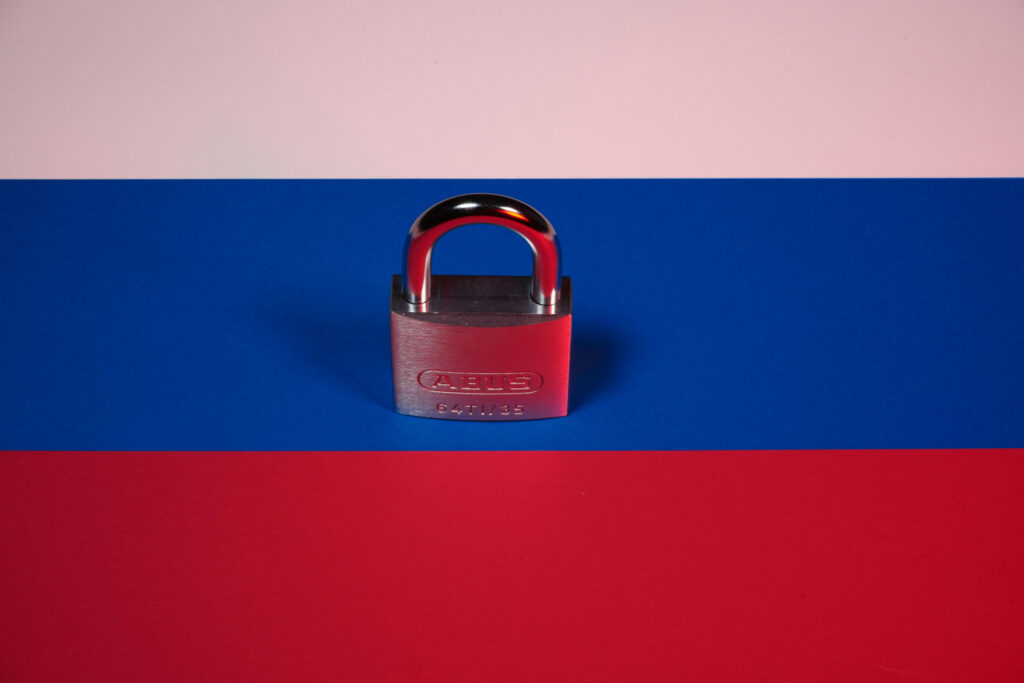Professor Jef Huysmans at Queen Mary University of London describes insecurity as a politically and socially constructed phenomenon, and argues that insecurities arise from institutional and political reactions to a threat. In his interpretation, “a threat functions as an event or condition that triggers and/or sustains the mobilization of governmental security agencies, political rhetoric on insecurity, and popular perceptions of danger.” Important to the politics of insecurity is defining the threats, which Huysmans acknowledges is contested. Two issues are often used to help in the contestation of threats: “(1) the subjective nature of the threat and (2) how much political priority it deserves.” This article focuses on the first point, which asks whether a threat is perceived or real, and examines the insecurities of Putin’s Russia to political opposition.
First, this article examines the real threat Alexei Navalny presented to President Vladimir Putin. Navalny’s political assassination demonstrates the severity that he presented to Putin’s power, which Putin has been consolidating since his presidential appointment on 26 March 2000. Second, it assesses the European Union’s (EU) response to the Kremlin’s increasing suppression of political opposition and the outcome of the rigged Russian presidential election in March 2024. It then closes on current implications of the Putin Presidency on Russia’s domestic and international insecurity.
Since his unprecedented third presidential term began on 8 May 2008, Putin’s regime has gradually intensified its oppression of any form of opposition and political pluralism in Russia. Even prior to the case of Alexei Navalny, the assassination of former Russian Deputy Prime Minister Boris Nemtsov—a vociferous critic of Putin—on 27 February 2015 had been a chilling precursor to the extent of the regime’s willingness to crack down on dissidents. During Putin’s second presidential term, Navalny’s work uncovered cases of corruption, including former Russian President Dmitri Medvedev who served from 2008-2012. There have been numerous attempts in seeking to coerce Navalny and his NGO (The Anti-Corruption Foundation), such as the attack of Navalny’s face with green dye at an anti-corruption rally in April 2017, but all had failed. Further efforts hoping to contain Navalny’s work include raids by Russian police conducted on the offices of his NGO and accusations of money laundering and embezzlement.
Navalny’s continued fight for a democratic Russia became an increasing threat to Putin’s authoritarian rule. As a consequence, Putin brutally escalated his coercion towards political opposition. On 20 August 2020, Navalny barely survived a poisoning of the nerve agent Novichok while onboard a flight from Tomsk to Moscow. Almost a year later, on 9 June 2021, his NGO was declared “extremist” by the Moscow City Court, thus barring Navalny and associates within the NGO from running for elections. In a speech given in Geneva on 16 June 2021—at the time meeting with his U.S. counterpart, President Joe Biden—Putin claimed that Navalny’s organization caused “riot and public disorder.” In 2021, Navalny’s imprisonment was a further sign of Putin’s insecurity caused by his perceived threat. After Navalny, Putin continued to arrest political opposition leaders, such as Ilya Yashin, to further coerce the political opposition in Russia. Those who remain Putin’s political prisoners are too aware of the consequences.
On 16 February 2024, Alexei Navalny was found dead in the cell of a labor camp close to the Arctic Circle. According to the prison colony, he died of “sudden death syndrome,” which is the Putin’s regime tasteless euphemism of his murder. Yulia Navalny, now widowed, addressed the European Parliament (EP) on 28 February 2024 accusing Putin of having murdered her husband. Now exiled from Russia, she is determined to continue Navalny’s fight for a democratic Russia and continuously advocates for her husband’s vision of Russia based on political pluralism and the rule of law.
About a month after Navalny’s murder, the world sadly witnessed another milestone in the consolidation of Putin’s dictatorship with the alleged victory of President Putin in rigged elections. In the 2024 election, people illegally voted in Ukraine’s territories which had been annexed by the Russian Federation in 2014 and 2022. The Russian state’s rejection of election observers from the Organization for Security and Cooperation of Europe further supports the claim of a fraudulent election. Putin’s determination to cling onto power at all costs has been long in the making. Since his second term in office, in the mid-2000s, Putin has been desperately containing any forms of criticism to his leadership. Between 2005 and 2009, he silenced Russian journalists and human rights activists who reported on Russian human rights abuses in Chechnya in the North Caucasus, which included award winning journalist Anna Politkovskaya. Increasing constraints on freedom of speech were complemented by state control of the media, which has been expanding to restrict internet usage and VPN access in Russia. He also implemented several constitution amendments, including an extension of presidential term limits from four to six years, allowing him to hypothetically remain in power until 2030.
The High Representative of the EU’s Foreign and Security Policy and Vice-President of the European Commission Josep Borrell stated on 10 April 2024 in a speech to the EP that “the elections in Russia “did not meet democratic standards and were illegally held in the occupied territories of Ukraine.”
Two weeks after Borrell’s speech, a more strongly worded joint motion for resolution was introduced on April 24 to acknowledge Russia’s rigged election. 31 Members of the European Parliament from different parties signed onto it, which blatantly stated:
so-called presidential election [which] was conducted without any political competition, in a severely restricted environment of systemic and grave repression and during the Russian Federation’s illegal war of aggression against Ukraine; whereas there were reports of voters being intimidated, voters being denied their right to vote, ballot boxes being stuffed, protocols from the precincts being falsified on a massive scale and independent domestic election observers being detained; whereas Russia illegally organized voting in the occupied Ukrainian territories of Crimea, Donetsk, Kherson, Luhansk and Zaporizhzhia, at times amid violence and threats by armed Russian soldiers; whereas Russia also has a record of organizing illegal voting in Abkhazia and South Ossetia and in Transnistria, against the will of the Georgian and Moldovan authorities…
This motion further criticizes the banning of candidates who were critical of “Russia’s war of aggression” against Ukraine which it claims the Kremlin staged under the fabricated pretext of a “special military operation.” Russian citizens who even use the notion “war” have been detained by the state. This motion characterizes Alexei Navalny as:
the most powerful figure in the democratic opposition and the 2021 laureate of the Sakharov Prize for Freedom of Thought… [who] was murdered in a Siberian penal colony, just weeks before the so-called presidential election; whereas Navalny had been serving an unfounded, politically motivated prison sentence; whereas the full responsibility for his murder lies with the Russian state and with its president Vladimir Putin in particular.
The rhetoric of this motion for resolution is stronger than Borrell’s’ comments. However, it must be acknowledged that it is a mere motion for a resolution, and that resolutions are not legally binding. Whilst an affirmative rhetoric in addition to the EU’s continued sanctions against Russia are important, it is not nearly enough in containing the expansion and brutality of the Putin regime.
The EU’s reaction towards the emergence of authoritarianism in Russia has gradually intensified since Russia’s illegal annexation of Crimea in March 2014. In its aftermath, the EU implemented a series of sanctions against individuals who allegedly facilitated the annexation. The aftermath of this annexation implies a breakdown of diplomatic ties between the EU and Russia which led to cancellations of biannually held EU-Russia summits. Russia’s full-scale invasion of Ukraine and the assassination of Navalny deepened the divide in EU-Russian relations. The relation is further strained by Russia’s cyber-attack against Germany and Czechia on 3 May 2024. Germany and Czechia hold the Russian General Staff Main Intelligence Directorate (GRU) accountable for an attack on the Social Democratic Party of Germany (SPD) and against numerous Czech institutions. According to NATO, GRU had previously conducted cyber-attacks in Lithuania, Poland, Sweden and Slovakia. NATO condemned the attack and reiterated its commitment to “countering the substantial and increasing cyber threat, including to our democratic systems and our critical infrastructure. We are determined to employ the necessary capabilities to deter, defend against and counter the full spectrum of cyber threats to support each other, including by considering coordinated responses.” The press release further urges Russia to respect its obligations to uphold international law. Since the beginning of Putin’s presidency, Russia committed a series of breaches to international law, which include among other things its invasion of Georgia in 2008, its annexation of Crimea in 2014, its full-scale invasion of Ukraine in 2022, and the silencing of journalists and human rights activists.
Domestically, critics of the Putin regime and his war against Ukraine will continuously face real and existential threats in Russia. Since the beginning of Russia’s full-scale invasion, which the Putin regime called a ‘special military operation’, Russian citizens were imprisoned for calling this operation a war. Now after two years, even the Kremlin is forced to acknowledge it is in a “state of war.” Internationally, the Putin regime’s use of military, ideology, and cyber-attacks remains real and existential. In the end, President Putin constructs real threats to Russian national security as a way of desperately clinging on to his power.
Notes
Amnesty International (2023). Russia: Anti-war political activist and prisoner of conscience Vladimir Kara-Murza sentenced to 25 years in jail – Amnesty International. 17 April 2023.
Anti-Corruption Foundation (2021). Don’t call him Dimon by Alexei Navalny in English VO ( dub ) FULL MOVIE DOCUMENTARY RUSSIA MEDVEDEV (youtube.com)
BBC (2019). Russia agents raid Alexei Navalny offices with power tools – BBC News.
BBC (2017). Russia opposition leader Alexei Navalny attacked with “brilliant green” dye – BBC News
Bushuev, M. (2020). Deutsche Welle. 27 February 2020. The man who dared to criticize Putin – DW – 02/27/2020
Cater, L. (2024). Politico. Navalny died from ‘sudden death syndrome,’ mother is told – POLITICO. 18 February 2024.
Deutsche Welle (2024). Yulia Navalnaya to receive DW Freedom of Speech Award 2024 – DW. 5 March 2024
European Parliament (2024). 24 April 2024. JOINT MOTION FOR A RESOLUTION on Russia’s undemocratic presidential elections and their illegitimate extension to the occupied territories | RC-B9-0253/2024 | European Parliament (europa.eu)
European Union. External Action. The Diplomatic Service of the European Union. 11 April 2024. HR/VP Josep Borrell | EP Debate on Russia’s presidential elections | 10/04/2024 | EEAS (europa.eu)
Huysmans, J. (2006) The Politics of Insecurity. Fear, Migration and Asylum in the EU. London and New York: Routledge.
NATO (2024). Statement by the North Atlantic Council concerning malicious cyber activities against Germany and Czechia. 3 May 2024. nato.cmail19.com/t/r-e-tdlyuytk-blhyddyirt-r/
Reuters (2023). Russia plans to try to block VPN services in 2024 – senator | Reuters. 3 October 2023.
Reuters (2021). Factbox: Russia’s criminal cases, accusations against Kremlin critic Navalny | Reuters
Reuters (2024). Kremlin, in change of language, says Russia is ‘at war’ due to West’s role in Ukraine
Roth, A. (2024). The Guardian (2024). Jailed Russian activist says he fears for his life after death of Navalny | Alexei Navalny | The Guardian
The Guardian (2016). The murder that killed free media in Russia | Russia | The Guardian. 5 October 2016.
US Department of State (2021). The Designation of Navalny-Affiliated Organizations as “Extremist” – United States Department of State. 9 June 2021.
Washington Post (2022). Reporter asks Putin why his political opponents are ‘dead, in prison, or poisoned’ (youtube.com)




